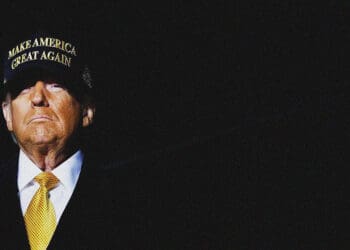Notable Cases, Settlements and Sentencings
Wendy Wysong, Nick Turner and Anthony Pan from Clifford Chance discuss last year’s most significant and substantial FCPA enforcement actions from the Asia-Pacific region – some leveled against corporations and some against individuals.
with co-authors Nick Turner and Anthony Pan
The pace of Foreign Corrupt Practices Act (FCPA) enforcement in Asia-Pacific remained steady in 2018, but not of torrential proportions. Notable cases from the region included Panasonic’s $280 million settlement with the U.S. Department of Justice (DOJ) and the U.S. Securities and Exchange Commission (SEC), a “princelings” settlement with Credit Suisse in Hong Kong and ongoing investigations related to 1 Malaysia Development Berhad (1MDB). Two of the five unrelated cases concluded by the DOJ in 2018 and half of the SEC’s 14 cases involved conduct arising in Asia-Pacific.
This may be the calm before the storm, at least for China. In November, the DOJ announced its “China Initiative” featuring 10 goals, one of which is to identify and prioritize FCPA cases “involving Chinese companies that compete with U.S. businesses.” Assistant Attorney General for the Criminal Division Brian Benczkowski elaborated, “We know that Chinese companies and individuals also have bribed government officials in other countries in order to win contracts. The Criminal Division is committed to fully enforcing the Foreign Corrupt Practices Act. Bringing these offenders to justice will help create a level playing field for American companies in foreign markets.”
Here is a roundup of the top 10 FCPA enforcement actions in Asia-Pacific from the last year in chronological order.
Corporates
1. Dun & Bradstreet
On April 23, 2018, the SEC entered into a $8.1 million settlement with Dun & Bradstreet based on self-disclosed violations by two of the company’s China-based subsidiaries. The DOJ declined to prosecute the company, based in part on its self-disclosure, cooperation and compliance remediation efforts.
Dun & Bradstreet’s self-disclosure followed the announcement of charges by the Shanghai District Prosecutor against one of the subsidiaries and its employees for illegally obtaining data on Chinese citizens. The SEC alleged that the company made illicit payments to obtain data via third-party agents. Notably, the company had flagged such risks as part of its pre-acquisition due diligence of the subsidiary. According to the SEC, employees at the company’s other subsidiary, a joint venture, bribed officials of a Chinese government agency via third-party agents to obtain financial data, falsely recording the payments as legitimate business expenses.
Takeaway: As demonstrated by the DOJ’s declination, timely self-disclosure and remedial actions based on the findings of an internal investigation can lessen the severity of penalties. The case also shows the importance of prompt remediation of risks identified during pre-acquisition due diligence.
2. Panasonic
On April 30, 2018, Japan-based Panasonic, a U.S.-listed company, and its U.S.-based subsidiary, Panasonic Avionics Corporation (PAC), agreed to pay $280 million in total penalties to the SEC and DOJ to resolve charges relating to improper consulting agreements, including at least one involving an employee of a state-owned airline. PAC, which manufactures in-flight entertainment and aviation communications systems, was also accused of knowingly causing Panasonic to mischaracterize expenses related to the agreements.
Panasonic agreed to pay $143.2 million in disgorged profits and prejudgment interest to the SEC and $137 million in criminal penalties to the DOJ, as well as to retain an independent compliance monitor for two years. PAC’s CEO and CFO also agreed to pay $75,000 and $50,000, respectively, as part of the overall settlement.
Takeaway: Although the settlement related to numerous consulting agreements, only one appeared to involve bribery of a government official. Nevertheless, the DOJ and SEC found that Panasonic and PAC lacked meaningful oversight of consultants and, in at least some cases, consultants were retained in breach of PAC’s due diligence requirements. Notably, the DOJ held two individuals criminally liable.
3. Beam Suntory
On July 2, 2018, Chicago-headquartered Beam Suntory Inc. agreed to pay $8.2 million to the SEC to resolve charges that its Indian subsidiary made illicit payments to government officials via third-party agents and distributors to expedite government approvals and facilitate sales. The Indian subsidiary reimbursed the agents through false invoices and improperly recorded the expenses in its books and records.
In determining the penalty, the SEC considered Beam Suntory’s self-disclosure, cooperation and remedial efforts—including that the company had ceased its Indian operations until it was able to operate compliantly. A DOJ investigation into the violation is believed to be ongoing.
Takeaway: Among other things, the Beam Suntory case illustrates the dim and narrow view of facilitation payments taken by the U.S. government, if they are systemic, widespread and improperly recorded. The risk is particularly acute in markets such as India, where such payments may be routinely expected by government employees as part of their compensation.
4. Credit Suisse
According to the DOJ and SEC, between 2007 and 2013, Credit Suisse’s Hong Kong subsidiary intentionally hired job candidates referred by or related to Chinese government officials and executives of state-owned entities in order to win business opportunities. The new employees, who were not required to follow the bank’s ordinary hiring process, were seen to lack necessary skills and were less qualified than other candidates, according to the settlement documents.
On July 5, 2018, Credit Suisse agreed to pay more than $30 million to the SEC, consisting of $24.9 million in disgorged profits and $4.8 million in interest. The bank agreed to a separate $47 million settlement with the DOJ.
Takeaway: The Credit Suisse settlement is the latest in a series of “princelings” settlements against western banks accused of hiring unqualified job candidates to curry favor with government officials and state-owned clients. The case serves as a reminder that the definition of “anything of value” is broad and includes not only cash payments, but also opportunities offered to friends and family of government officials to corruptly obtain a business advantage.
5. UTC
On September 12, 2018, United Technologies Corporation (UTC) agreed to pay $13.9 million to the SEC based on FCPA violations by its subsidiaries, Otis Elevator Company and Pratt & Whitney.
The SEC charged that in China, Pratt & Whitney, through a joint venture, paid improper commissions to a third-party agent to sell jet engines to state-owned airlines. Separately, Otis Elevator Company paid a kickback to an official of a state-owned bank to win a contract to install elevators in one of the bank’s branches. UTC also was accused of improperly funding leisure travel for foreign officials from China, Indonesia, South Korea, Thailand and other countries.
The settlement stems from self-disclosures made to the DOJ, SEC and the U.K. Serious Fraud Office (SFO) in 2013 and 2014. In April 2018, UTC announced that the DOJ had notified the company that it would decline to prosecute the company.
Takeaway: The breadth of the UTC violations and the involvement of numerous subsidiaries and joint ventures, as well as the DOJ’s decision to decline prosecution, illustrate the importance of maintaining a strong global compliance program and proactively self-disclosing potential violations to relevant authorities.
6. Stryker
On September 28, 2018, Michigan-based medical device manufacturer Stryker agreed to pay the SEC $7.8 million for failing to maintain internal accounting controls in respect of its subsidiaries in China, India and Kuwait. In India, Stryker issued “inflated invoices” for private hospitals. In China, the company employed unauthorized sub-distributors in breach of its own policies.
Takeaway: Because this was Stryker’s second offense, following a 2013 settlement, the SEC also required the company to retain an independent compliance consultant. Repeat offenders are likely to face closer scrutiny.
Individuals
7. Lawrence Hoskins
On August 24, 2018, the United States Court of Appeals for the Second Circuit affirmed a lower court’s ruling that Lawrence Hoskins, a British national who had no connection to the United States, could not be held liable for conspiring to violate or aiding or abetting a violation of the FCPA in connection with a scheme to bribe Indonesian government officials. According to the DOJ’s 2013 indictment against Hoskins, Alstom’s U.S. unit had retained consultants to bribe officials in Indonesia to secure a $118 million government contract. However, Hoskins was an officer only of the company’s U.K. subsidiary during the relevant period.
Takeaway: The Hoskins ruling limits somewhat the broad reach of U.S. extraterritorial jurisdiction for foreign nationals acting exclusively outside of the United States, unless the government proves actual agency on behalf of a U.S. domestic concern.
8. Tim Leissner, Low Taek Jho (Jho Low) and Ng Chong Hwa (Roger Ng)
On November 1, 2018, the DOJ announced that Tim Leissner, the former Southeast Asia Chairman for Goldman Sachs, had pleaded guilty to money laundering and violating the FCPA in connection with the 1MDB scandal. Leissner was ordered to forfeit nearly $48 million in profits.
At the same time, the DOJ announced an indictment against Roger Ng, a former Goldman Sachs banker, and Jho Low, a financier, for conspiracy to launder money and bribe government officials in Malaysia and Abu Dhabi.
Takeaway: The DOJ noted that both Leissner and Ng knowingly circumvented Goldman Sachs’ internal controls as part of their scheme. Further actions are anticipated in the United States and elsewhere in connection with the matter.
9. Chi Ping (Patrick Ho)
On December 5, 2018, a New York jury convicted Patrick Ho of bribing African officials on behalf of a Chinese energy company in violation of the FCPA. According to the DOJ’s complaint, Ho offered a $2 million bribe to the President of Chad in exchange for oil rights. (The bribe was rejected.) Ho also made a $500,000 payment and provided gifts and promises of future benefits to Ugandan officials in exchange for assistance in obtaining advantages for the Chinese company.
Takeaway: While Ho’s conduct would have attracted enforcement attention at any point in the FCPA’s history, the case also serves to highlight the DOJ’s recent policy of prioritizing individual prosecutions, as outlined in the 2015 Yates Memo and reinforced again this year, with some modifications, in the DOJ Justice Manual (formerly known as the United States Attorneys’ Manual)
10. Notable Sentencings
Joohyun (Dennis) Bahn
On September 6, 2018, Joohyun (Dennis) Bahn, nephew of former UN Secretary-General Ban Ki-moon, pleaded guilty to conspiracy to violate the FCPA and was sentenced to six months in prison and agreed to disgorge $225,000 in profits. Bahn, a commercial real estate broker, paid $500,000 to an intermediary in an attempt to bribe a foreign government official for the opportunity to broker the sale of a commercial building in Vietnam.
Ng Lap Seng (David Ng)
On May 11, 2018, Ng Lap Seng, a Macau real estate developer, was sentenced in the Southern District of New York to four years in prison for bribing UN officials to gain support for the construction of a conference center in Macau. The court ordered Ng to pay a $1 million fine, along with an assessment of $600,000, a forfeiture of $1.5 million and restitution of more than $300,000. Ng’s appeal of the conviction is ongoing.
Bonus “Anti-piling On” Declination
On August 20, 2018, the DOJ informed Guralp Systems, a U.K. manufacturer of seismic detection equipment, that it would decline to prosecute the company for alleged violations of the FCPA in connection with payments made to a South Korean official. The DOJ’s declination is an example of the “Policy on Coordination of Corporate Resolution Penalties” (the “Anti-piling On” policy) announced in May 2018, which aims to avoid disproportionate penalties from multiple enforcement actions in response to the same violations. The DOJ’s declination letter noted that Guralp is “the subject of an ongoing parallel investigation” by the U.K. SFO.
Conclusion
Despite some speculation that the Trump administration would slow FCPA enforcement, 2018 brought several large and significant actions related to the Asia-Pacific. We anticipate continued active enforcement from U.S. regulators in 2019. Meanwhile, the DOJ’s recently announced strategy of targeting Chinese companies for FCPA violations committed outside of China is sure to put the agency’s extraterritorial reach to the test, in light of ongoing U.S.-China trade tensions.



 Wendy L. Wysong is a partner at
Wendy L. Wysong is a partner at 
![FCPA Enforcement Is Changing; What Does It Mean for Compliance Programs? [Q&A]](https://www.corporatecomplianceinsights.com/wp-content/uploads/2025/02/doj-sign-on-building-350x250.jpg)







